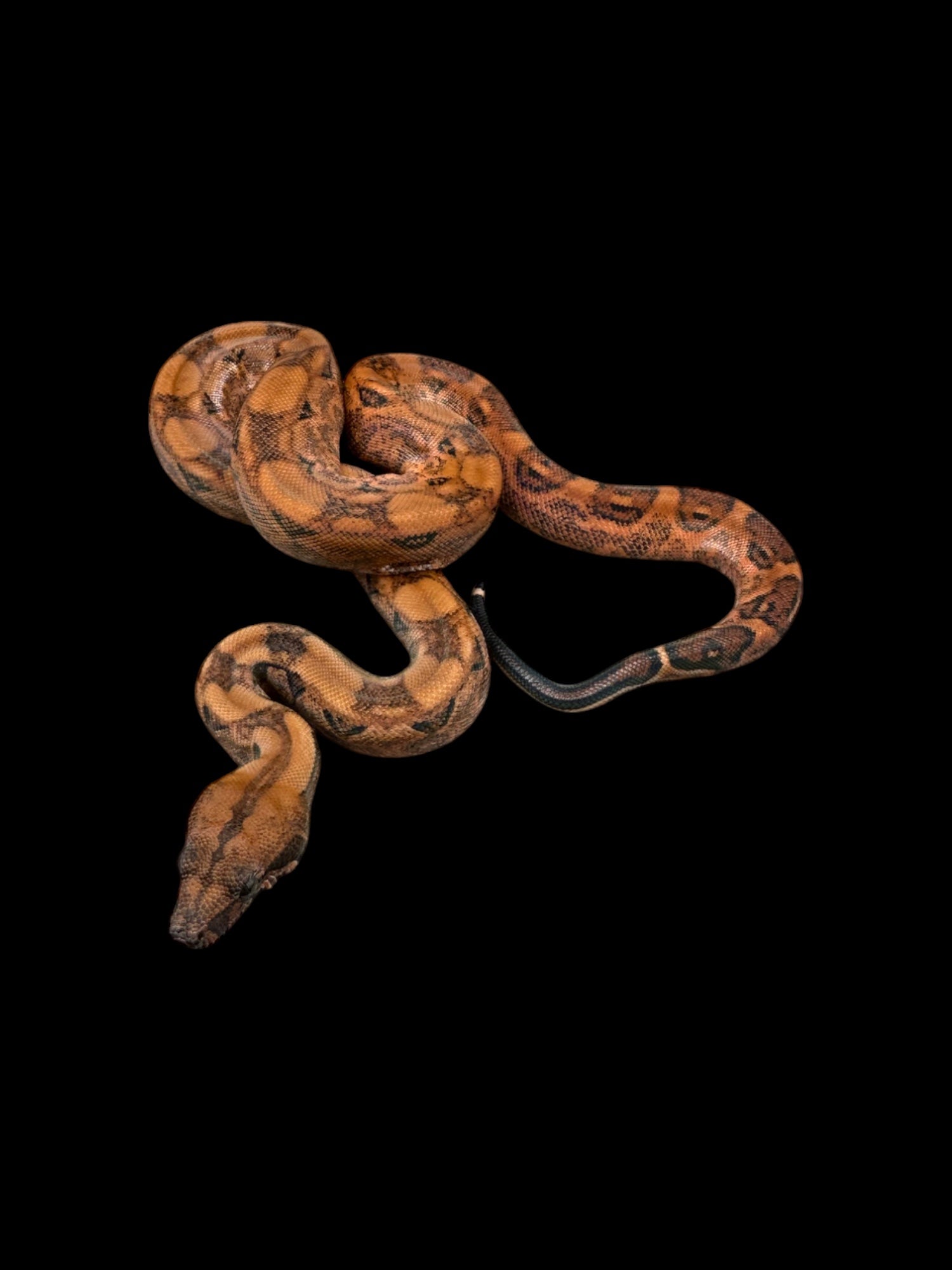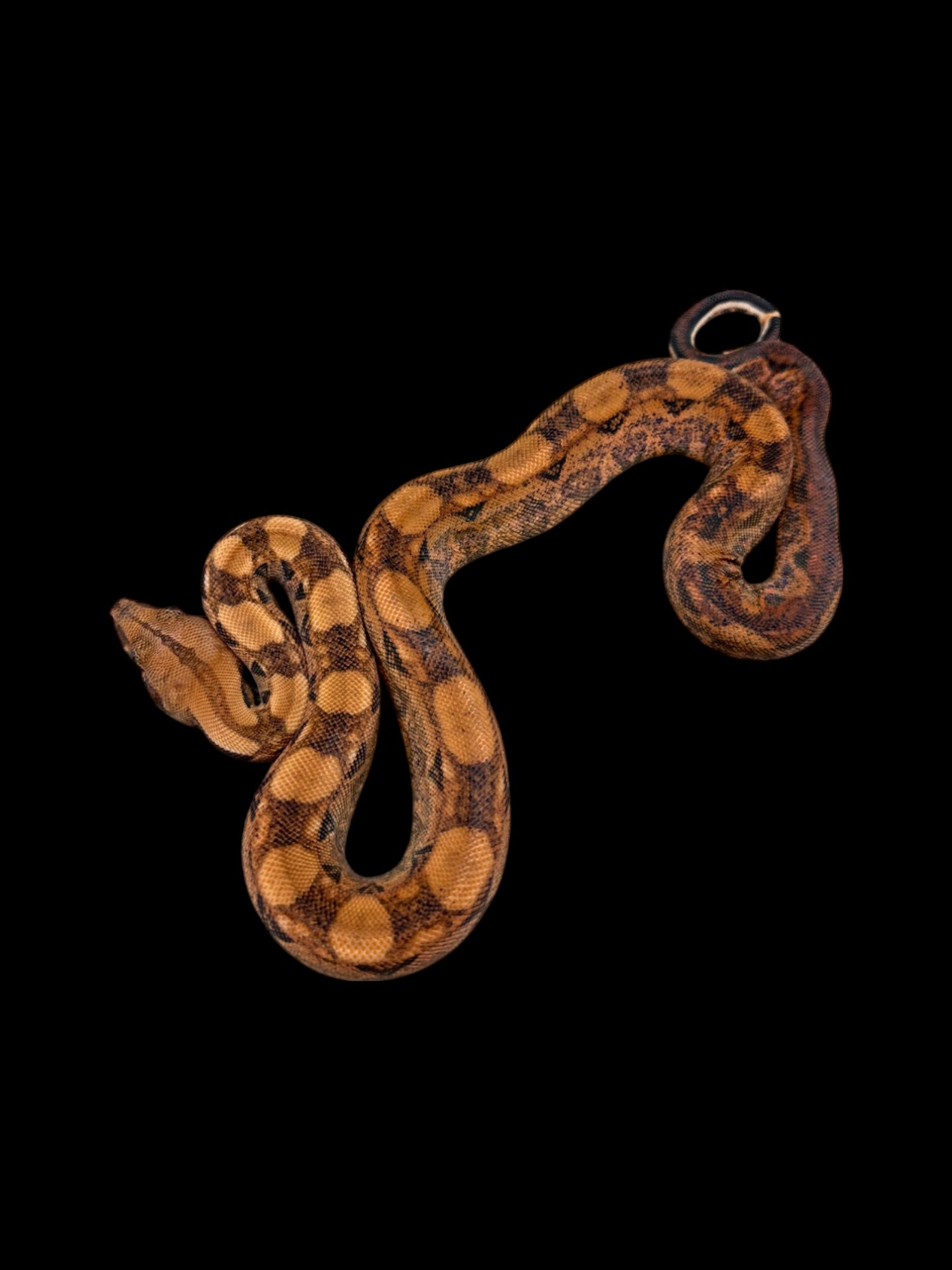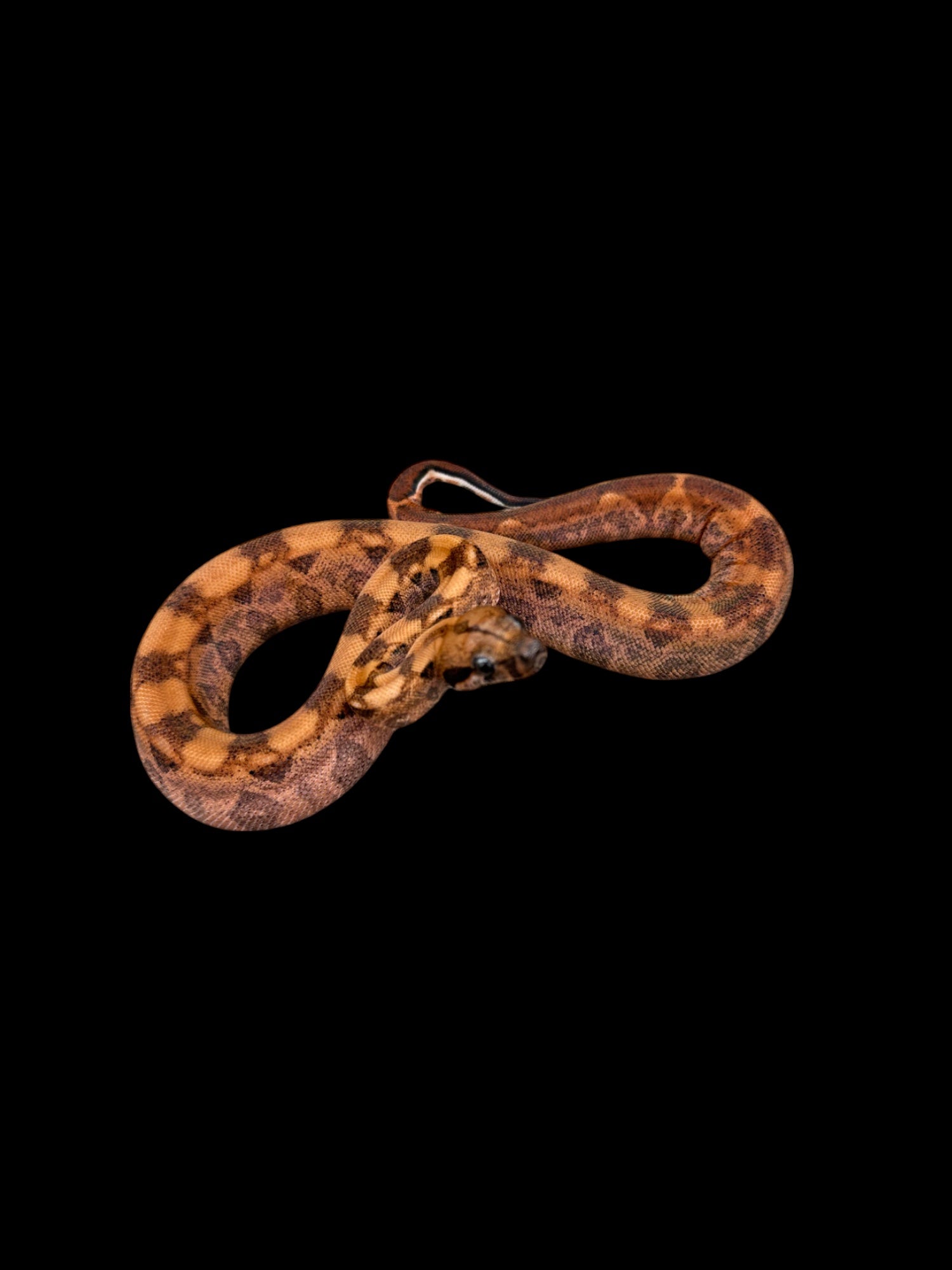Photo Disclaimer
Description
B.C.I (Blood John Berry Line El Salvador Boa)
Scientific Name: Boa constrictor imperator
Common Name: B.C.I, Blood John Berry Line El Salvador Boa
Species Overview
Size: Adults typically reach 4–6 feet (1.2–1.8 m) in length, with females generally larger than males. Adult weight ranges from 10–20 pounds, depending on genetics and husbandry. While smaller and more compact than standard B.C.I, they still require proper space and enrichment.
Appearance: This morph highlights the John Berry bloodline from El Salvador, known for clean, sharply defined patterns and strong contrast between saddles and background colouration. The overall palette tends toward rich browns and tans with minimal muddiness, producing a striking, classic B.C.I appearance.
Distribution: Native to Central America, primarily El Salvador and surrounding regions.
Habitat: Occupies tropical lowlands, forest edges, and semi-arid areas. Often found near rivers or lowland scrub forests.
Behaviour: Primarily nocturnal ambush predators, feeding on small mammals, birds, and reptiles. Excellent swimmers and climbers, though adults are mostly terrestrial.
Captive Care
Enclosure: A naturalistic setup is strongly recommended. Adults should have at least a 4′ × 2′ × 2′ (122 × 61 × 61 cm) enclosure with sturdy branches, hides, cork bark, and plant cover. Bioactive environments with soil substrate, leaf litter, and live plants help maintain humidity and provide enrichment.
Temperature and Humidity: Maintain a gradient of 80–85°F (27–29°C), with a basking spot of 88–92°F (31–33°C). Nighttime can drop to 75–78°F (24–26°C). Humidity should remain between 55–70%, with access to a water dish large enough for soaking.
Lighting: Standard ambient lighting is sufficient. Low-level UVB is optional but can benefit live plants in naturalistic setups.
Diet: Juveniles feed every 7–10 days on appropriately sized rodents; adults feed every 14–21 days on larger prey items.
Behaviour in Captivity: Hardy and generally tolerant of handling. With consistent, calm husbandry, most individuals become manageable pets.
Special Considerations: Although smaller than standard B.C.I, adults still require proper housing. Handling even moderately sized adults can be challenging; having a second person assist is recommended for safety and stress reduction.
Taxonomy Note
Boa constrictor imperator is a member of the family Boidae, a group of non-venomous constricting snakes native to the Americas. Formerly classified as a subspecies of Boa constrictor, B. imperator is now widely recognised as a distinct species based on genetic, morphological, and geographic evidence, with a natural range spanning much of Central America and extending into parts of northern South America. In captivity, this species is valued for its adaptability, generally steady temperament, and extensive diversity of selectively bred colour and pattern traits, all of which retain consistent core behaviours and care requirements across standard B.C.I forms.
Genetics Note
Blood (Recessive): The Blood gene is a recessive colour mutation originally developed from El Salvador locality boas that produces intense red and orange saturation throughout the animal’s colouration. Young Blood boas often appear vivid blood-red, and while adults can deepen into rich burnt orange/brown tones, the trait clearly enhances warm pigments and contrast when expressed in two copies. Animals must inherit two copies to visually express the Blood phenotype, while single-copy carriers do not show visually but can pass the gene to offspring.
John Berry Line (Lineage Modifier): This refers to the specific breeding line of El Salvador Blood boas propagated by John Berry and others. Lineage influence can contribute to consistent expression of the Blood trait and typical locality characteristics (smaller size, clean pattern), but it does not represent an independent gene with a separate mode of inheritance outside of the Blood recessive mutation itself.
El Salvador (Locality): El Salvador locality Boa constrictor imperator traits tend toward smaller, more compact adults compared to many other B.C.I localities and often show strong contrast and warmer base colours. Locality does not operate as a traditional genetic mutation but is important for phenotypic influence and breeding significance.



